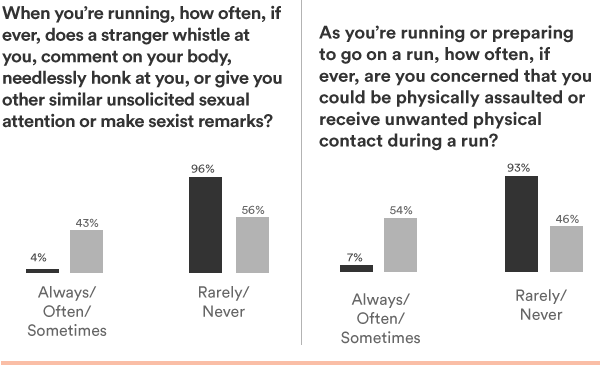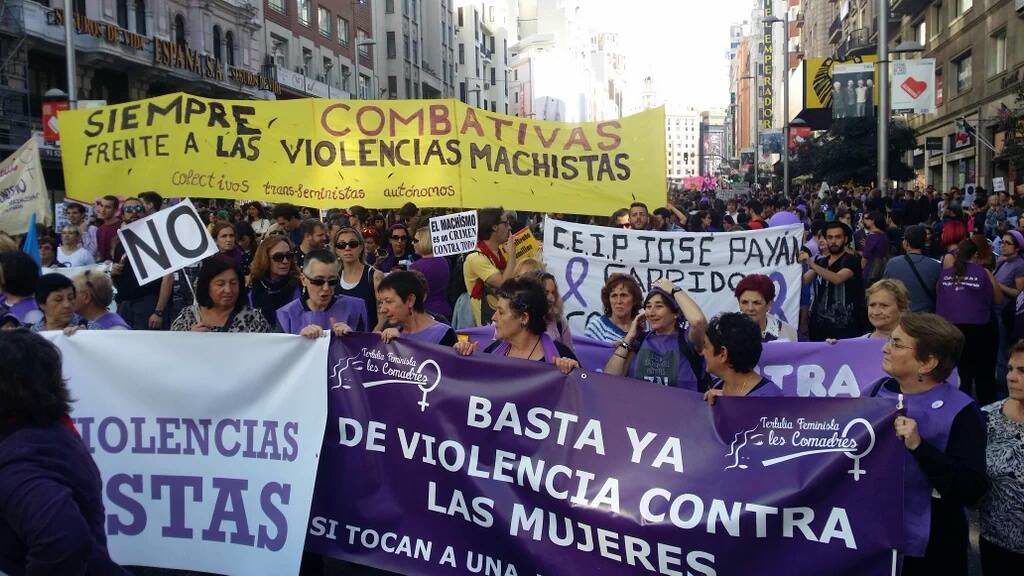Here are some of the global news highlights from the past few weeks:
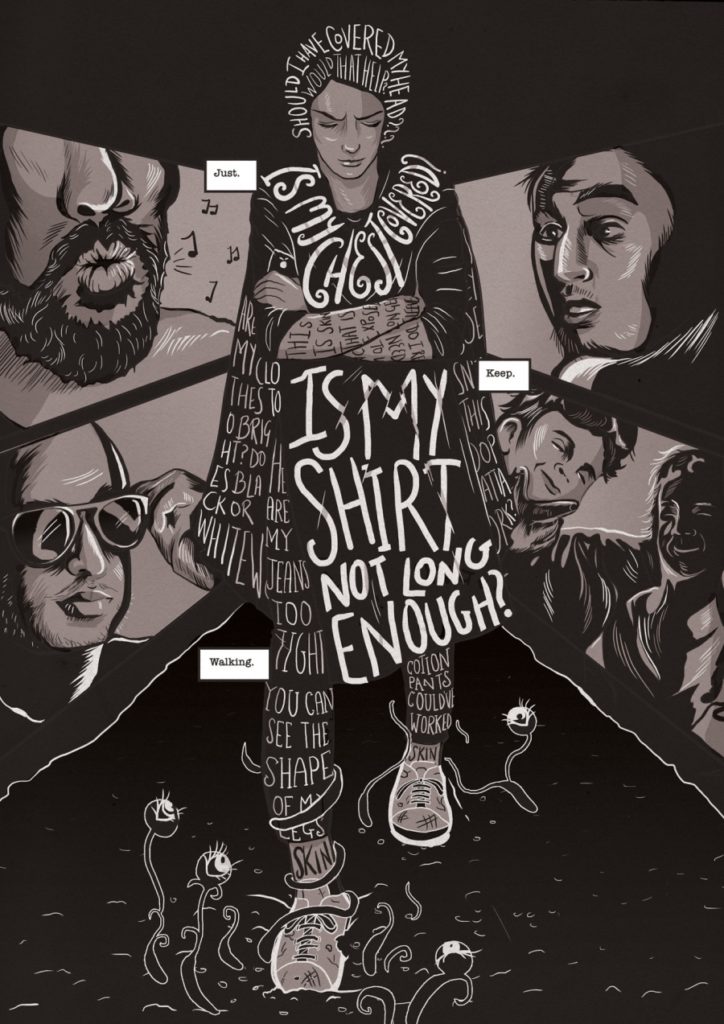
Tens of thousands of women marched in Argentina to protest violence against women.
“Respectful relationship” curriculum will be mandatory in all Victoria, Australia, schools next year and students will learn about social inequality, gender-based violence, and male privilege.
A video of a woman walking for two hours in San Jose, Costa Rica, garnered a lot of discussion about street harassment.
A French TV commentator kissed a young woman’s breasts without consent on live TV, sparking a national conversation about sexual abuse.
Thanks to SHE teams launched two years ago in Hyderabad, India, street harassment is down by 20%.
Half of all women in Ireland have faced some form of sexual harassment in their life.
An increase in non-consensual up-skirt recordings in tourist areas in Kyoto, Japan, has prompted more police patrolling.
Women in Morocco are standing up to street harassers.
Illustrator Shehzil Malik in Pakistan created a series of images she called #WomenInPublicSpaces.
A viral video of street harassment in Trinidad prompted the Office of the Prime Minister (Gender and Child Affairs) to state that such behavior is illegal.
Thousands of women in Turkey dressed in their best and rode bicycles to claim their right to the streets.
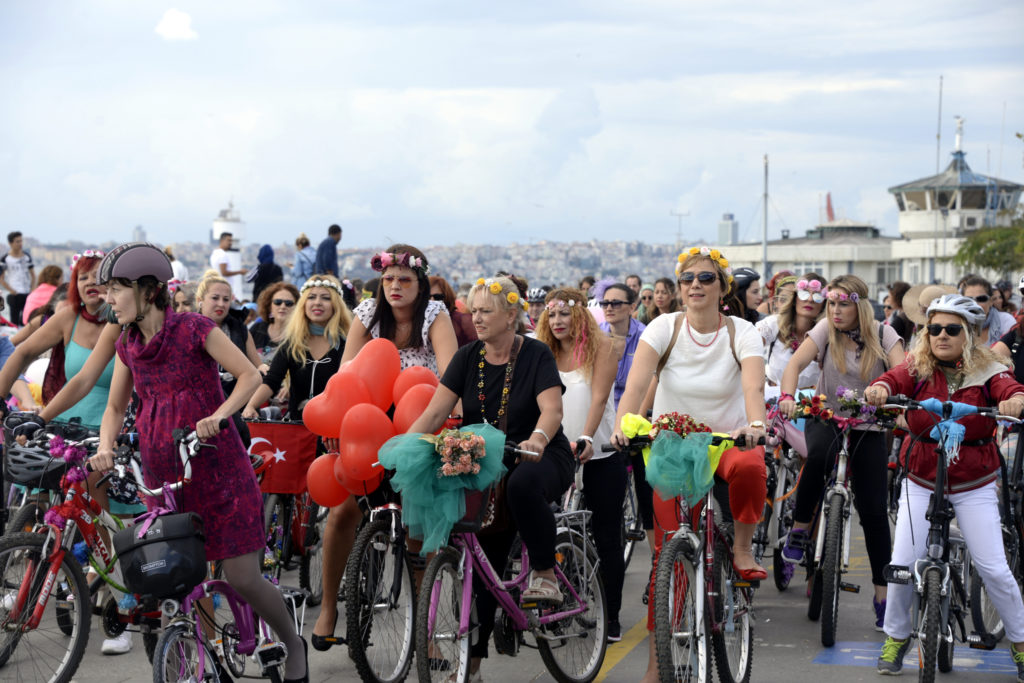

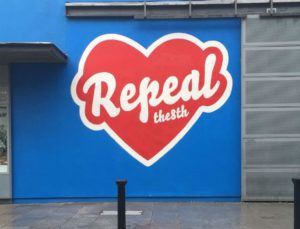 Street artist, Maser, graffitied a large red and white heart bearing the words “Repeal the 8th” on the wall of Dublin’s Project Art’s centre. The mural was painted over after Dublin City Council received complaints, which sparked mass outrage and indignation over this threat to freedom of speech. At a protest, I spoke to countless men and women who wanted to make the message abundantly clear: the issue of reproductive rights in Ireland cannot be covered up with a bit of blue paint.
Street artist, Maser, graffitied a large red and white heart bearing the words “Repeal the 8th” on the wall of Dublin’s Project Art’s centre. The mural was painted over after Dublin City Council received complaints, which sparked mass outrage and indignation over this threat to freedom of speech. At a protest, I spoke to countless men and women who wanted to make the message abundantly clear: the issue of reproductive rights in Ireland cannot be covered up with a bit of blue paint.